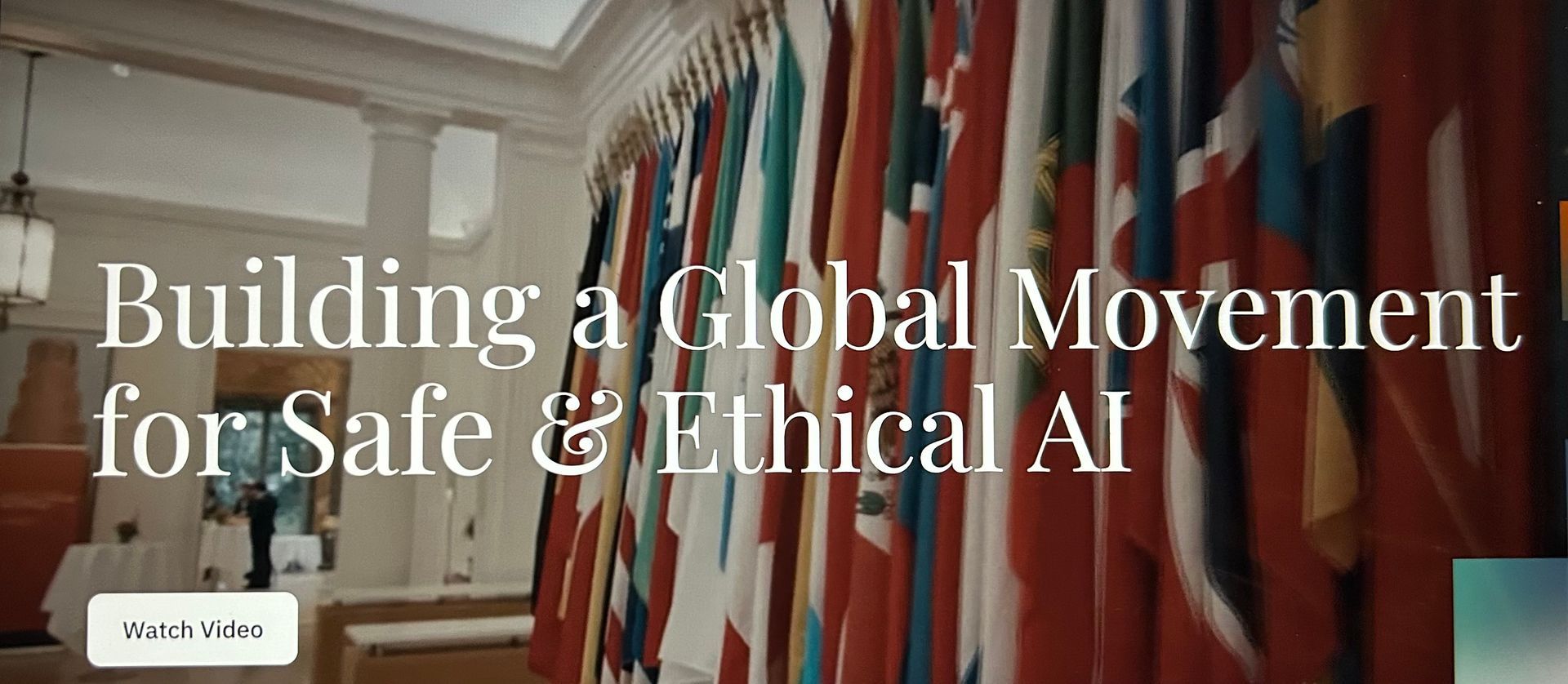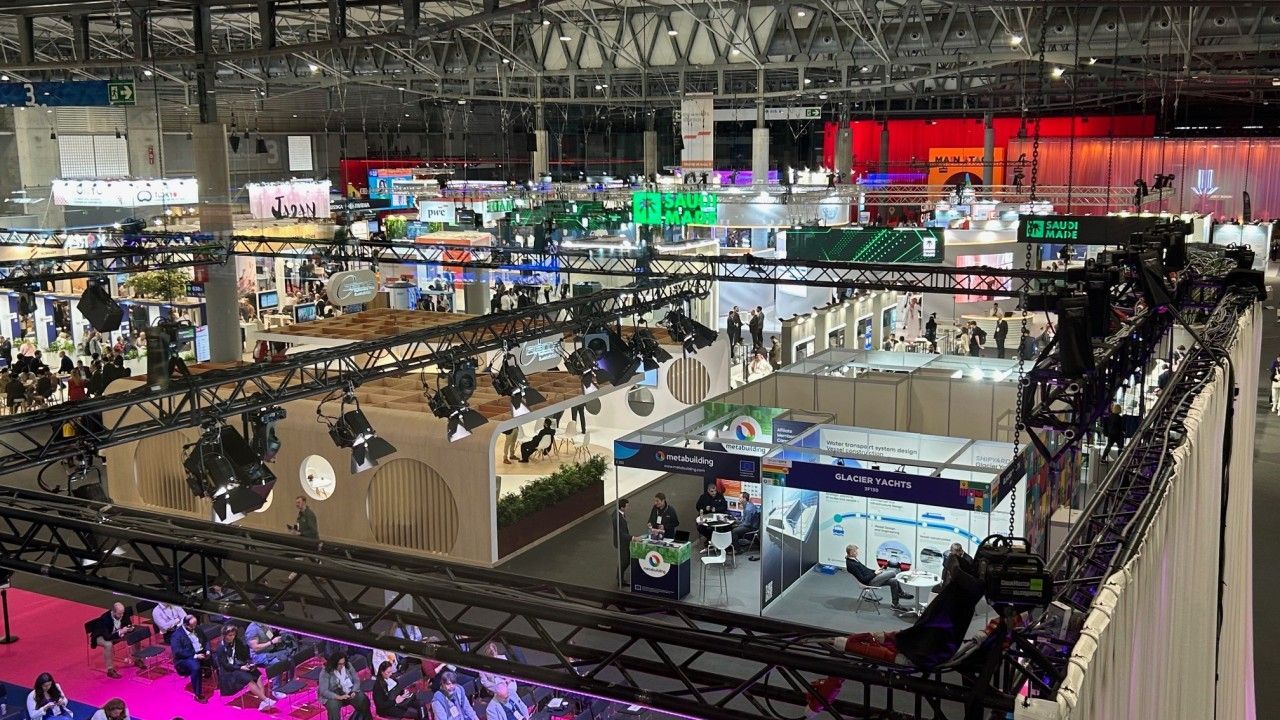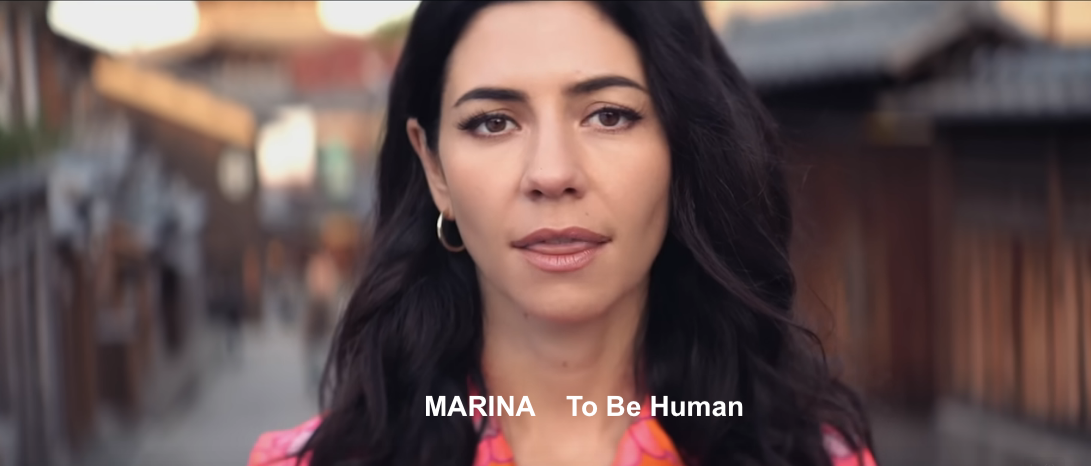Towards the UN Summit of the Future and the SDG Summit in 2023 - and Aiming at Becoming Part of the Solution
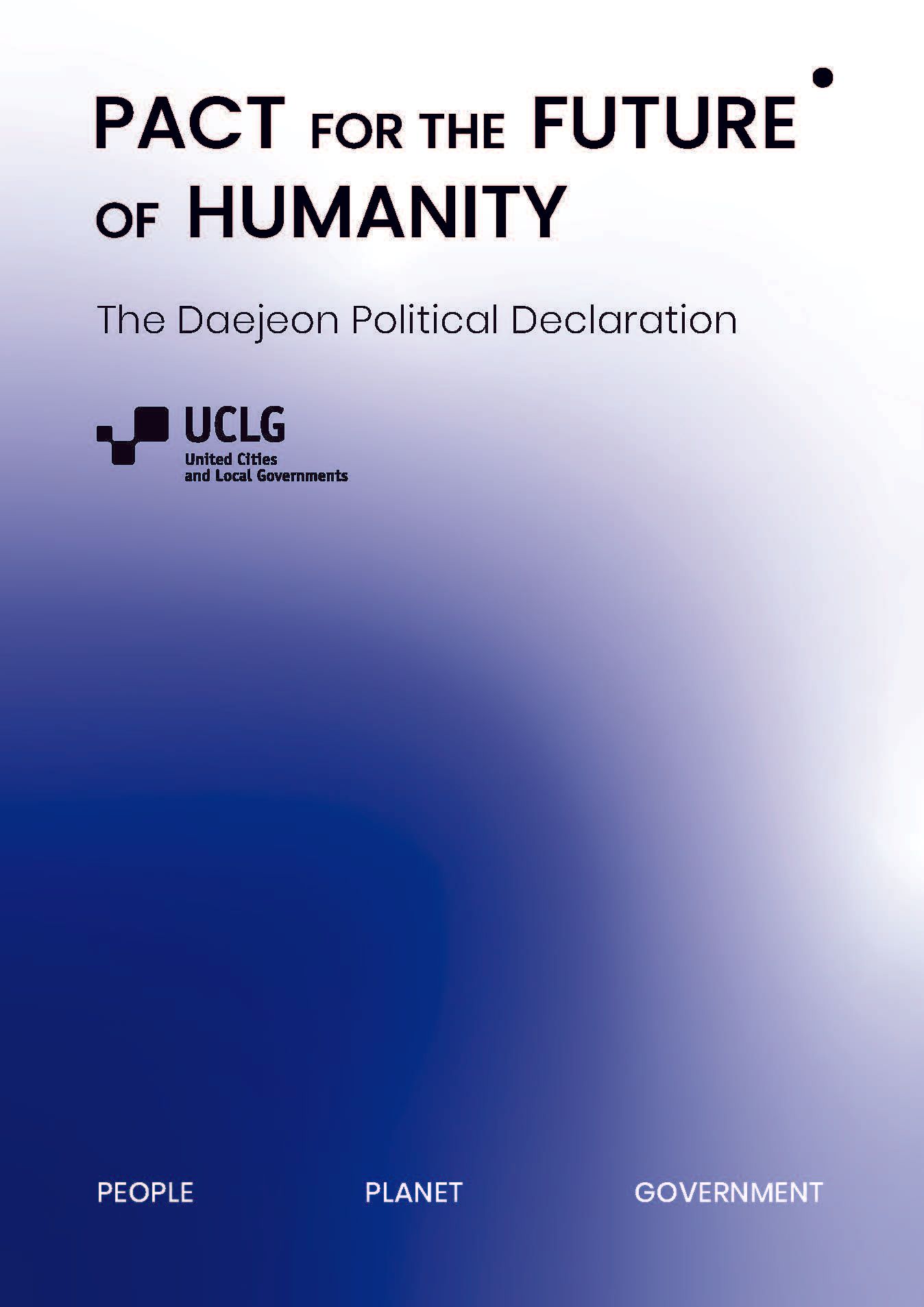
Ambitions and limitations for city networks in their cooperation with member states
The ‘Pact for the Future of Humanity`, is The Daejeon Declaration and as such the key outcome document of the UCLG 2022 World Congress of Daejeon in South Korea[1]. With the Declaration UCLG as one of the biggest city networks in the world defines its Strategic Priorities for the Organization in the years 2022 to 2028.
The Pact is especially important for the upcoming year as the United Nations has announced to convene in 2023 two most important meetings: The UN Summit of the Future and the SDG Summit of 2023. Marking the mid-point in the implementation of the 2030 Agenda for Sustainable Development, the SDG Summit will carry out a comprehensive review of the state of the SDGs, respond to the impact of multiple and interlocking crises facing the world, and provide high-level political guidance on transformative and accelerated actions leading up to the 2030 deadline for achieving the SDGs.[2] The Summit of the Future aims to forge a new global consensus on what our future should look like, and what can be done today to secure it.[3]
“With the Pact, local and regional governments re-state that they are ready to join national and international partners in bringing about meaningful change. The World Summit of Local and Regional Leaders and UCLG Congress was the stage to ensure that the Pact for the Future speaks to the UN Summit of the Future and the SDG Summit of 2023. Twin high-level consultations on the future for People, Planet and Government framed the political vision of our constituency and were built on the aspirations of our national and international partners, which will further represent a crucial lever to ensure that our constituency plays its part within a renewed multilateral system to achieve the global development agendas, such as the 2030 Agenda, the Paris Agreement and the New Urban Agenda. To meet the expectations of current and future generations and break through as one.” (UCLG Press Release, 19 October 2022)
In Daejeon UCLG also already launched the report GOLD VI ‘Pathways to Urban and Territorial Equality’ addressing inequalities and possible local transformation[4]. The report delivers a comprehensive analysis and a wealth of information which makes it an important source for academia and practice. GOLD VI is another example with which UCLG proves its expertise on a broad range of subjects relevant for urban governance around the world. Even more important for next year will be the Pact as a political opening by UCLG towards the twin summits in 2023 where among others also the role and voice for local and regional governments might be re-defined. And here the Pact gets relevant beyond the borders of UCLG.
Certainly, the situation of UCLG and other city networks is not easy on the world stage where national governments show only limited interest in cities and regions as global actors and where no local organization has a formal mandate to represent all cities and regions:
- UCLG considers itself to be the largest global network of cities and local, metropolitan and regional governments and maybe it is. In the Basic guide for active participation in UCLG’s government bodies[5] UCLG describes itself as the amplified voice of +250,000 towns, cities, regions and metropolises which amounts to 5 billion people or 70% of the world population. That’s amazing but it’s difficult to cross-check this and to find information on how many of those cities and regions are indeed registered members UCLG and commit to all UCLG positions and publications.
- At meetings of the United Nations Security Council, the UN General Assembly, ECOSOC, G20, G7 and other multilateral organizations cities and regions have no formal seat and voice. The only development is that these bodies more and more often give to networks of cities like UCLG, ICLEI or C40 an observer status and a limited chance to speak on invitation at meetings. However, cities and regions have no voice in decision-making itself and accordingly also no veto position.
This situation is regrettable because all cities would need a proper representation at global summits to raise their voice and whatever member states decide, they need towns, cities and regions to implement their decisions. Therefore, it would be in the interest of all to strengthen the multilateral system of cooperation. For the time being UCLG and other city networks have no option but to be smart and use its limited resources and influence strategically.
[1] https://daejeon2022.uclg.org/
[2] https://sdg.iisd.org/events/sdg-summit-2023/
[3] https://sdg.iisd.org/events/summit-of-the-future/
[4] https://www.goldvi.uclg.org).
[5] https://issuu.com/uclgcglu/docs/eng-guia_statutary-web-ok
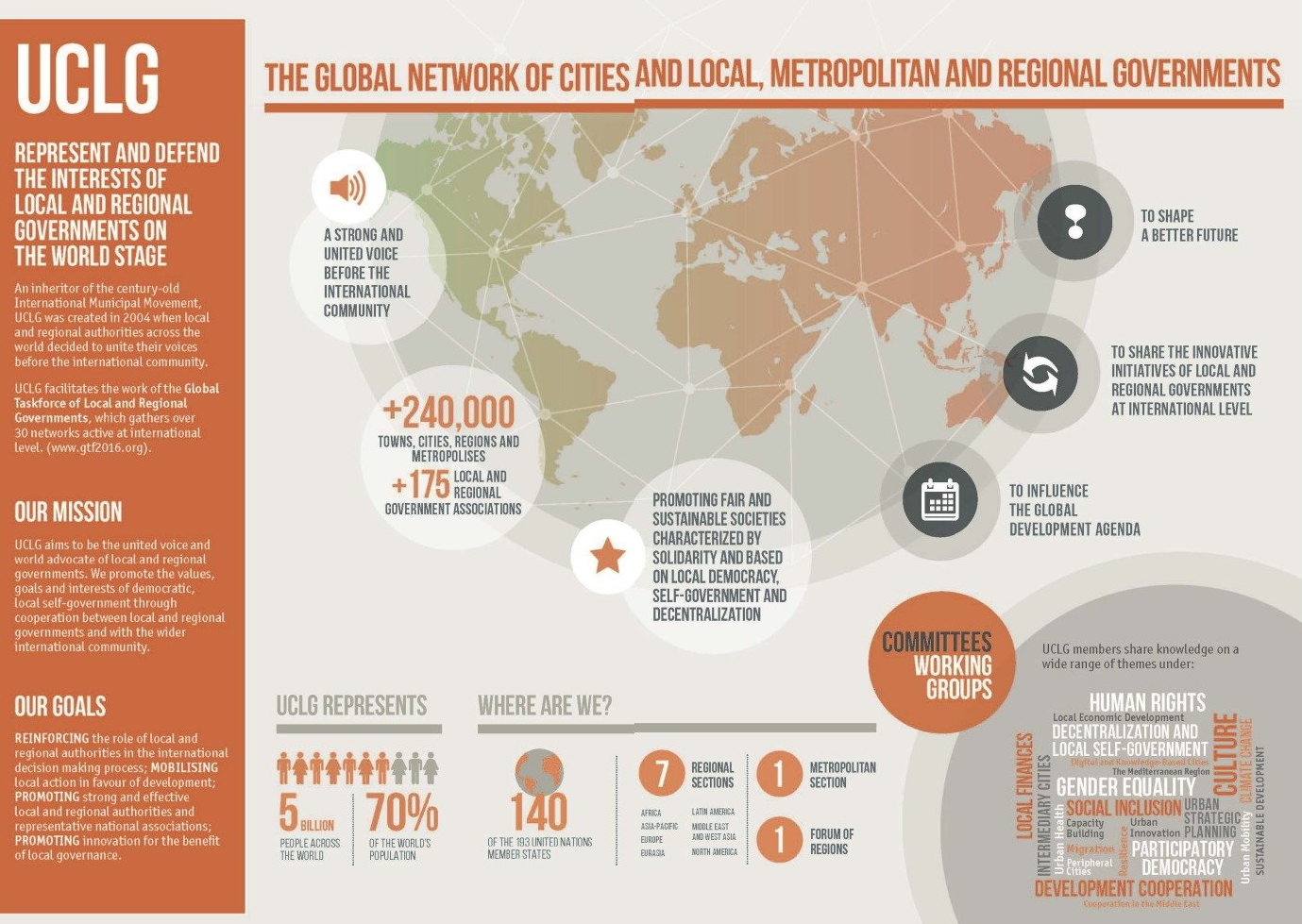
UCLG - Who we are? Source: https://issuu.com/uclgcglu/docs/uclg_who_we_are
Developing the Daejeon Declaration into a real Pact for the Future of Humanity
As a Declaration addressed to the own members and donors the paper it is good. For members and for donors it recalls what UCLG is about. In doing so, it assumes, considers, takes stock, recognizes, reaffirms, commits and pledges a lot what is known from earlier declarations and global agendas and as such it is linking the new pact to the century old movement of city networking. That is comforting. Doing this on 22 pages is from a member perspective appropriate because it allows to list so many fields of activity that each member can find own interests and subjects of concern reflected in the Declaration. This inclusiveness is also important to rally internal support for the declaration.
But, as a declaration addressed to non-members in preparation of the twin summits next year and titled emphatical as ‘Pact for the Future of Humanity’ the Pact shows some space for improvement.
The UCLG Press Release states that the visions and aspirations reflected in the Pact will be shaped into actionable commitments throughout 2023. That sounds good but seems to be surprisingly late considering that the twin summits already being under preparation.
It is important to note that UCLG appointed in Daejeon three political leaders as Ambassadors for the Pact for the Future:
Ada Colau, Mayor of Barcelona as Ambassador for the Future of People;
Anne Hidalgo, Mayor of Paris as Ambassador for the Future of Planet;
Yücel Yilmaz, Mayor of Balikesir as Ambassador for the Future of Government.
However, nominating mostly Europeans as separate ambassador for three closely interrelated fields (People, Planet and Government) doesn’t substitute a strategy for the next year. And it probably doesn’t help these Ambassadors that the Pact/Daejeon Declaration mainly re-states and reconfirms a lot of observations and commitments known from the past without indicating real priorities for the next year.
While the long-list of the 22 pages Declaration may be good for internal discussions, as I stated above, the same may pose a risk for global consultations before and during the twin summits!
Member states are currently under extreme pressure due to the multiple crises. It’s extremely difficult for them to compile complete information for rational decisions and to react properly to dynamic developments and emerging issues. Member states most likely will look at the summits for ways to reduce complexity and not to discuss or even increase it. If UCLG or other networks enter the pre-summit stage just with 22 pages listing observations, issues, interests and own commitments they risk to be regarded as part of the problem and not of the solution!
Instead, if UCLG would set clear priorities or in the ideal case a nexus of key challenges and opportunities which best can be addressed with support of well financed local governments then member states might be more tempted to give it a try and accept the hand offered by cities and region.
UCLG and other city networks still have the time and opportunity to develop a proposal and offer member states a pact across policy levels. This true pact should include a proposal on how to best continue with the 2030 Development Agenda because this is currently missing on the side of the UN and member states. And it should make an offer regarding possible commitments to be delivered by cities and regions. Certainly, cities and regions have to ask for appropriate resources but a pact with and among member states at the twin summits which involves city networks depends on agreements in mutual interest. With the Daejeon Declaration ‘Pact for the Future of Humanity’ as it is, it is likely that member states are reminded about the complexity of the challenge but that they won’t understand easily what UCLG is offering and why should they invite UCLG and other city networks at the centre stage of consultations and decision-making.
UCLG can be proud on its century of city networking even if it just has a couple thousands of members in different sections around the world. UCLG can also be proud on its capacity as Think Tank as the report GOLD VI again demonstrates. Policy declarations are important but even more important are real strategies to achieve goals. Now, I think, UCLG should step into the shoes of decision-makers at the twin summits in 2023 and strategize on what member states want to achieve, where UCLG wants to be at the end of the summits and what it has to do in the upcoming months alone and in cooperation with partners to achieve that.
Policies and Governance for Resilient and Sustainable Cities and Regions

